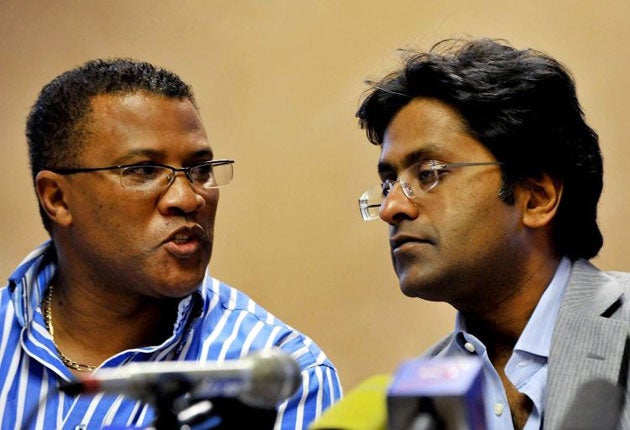Sky behind IPL snub - not weather
South Africa to host India's slogfest as England miss out after satellite rights clash

England's huge embarrassment at being rebuffed yesterday by the Indian Premier League should have been matched by equally enormous relief. The competition, moved from its natural home because of serious security risks, will be played in South Africa.
Lalit Modi, the IPL commissioner, and Gerald Majola, the chief executive of Cricket South Africa, agreed a deal yesterday which will mean the tournament starting a week later than scheduled at six grounds. Modi did not bother going on to London as initially planned to hear a pitch from the England and Wales Cricket Board for staging the game's most lucrative competition. This was not how it was meant to be or (as late as Sunday night) thought to be. England were bullish enough then to think that they would indeed be staging the competition. Their carefully rehearsed optimism was clearly born of encouragement from the Board of Control for Cricket in India. But the BCCI suddenly became less enthusiastic when they realised it might rain in England in April, recognition on a par with understanding that Shane Warne is a leg-spin bowler.
There might have been much more to it than April showers as a leading sports lawyer, Stephen Hornsby, pointed out yesterday. "Before everyone got excited about the chance of the IPL being played in England, a simple question needed to be asked," said Hornsby, a partner with Davenport Lyons. "Why would a commercial organisation like Sky pay a large amount of money to a sports governing body in return for exclusive rights in the territory, without preventing such a body from allowing a competitor to broadcast another event in the same territory at roughly the same time? The answer is that it would not."
Sky, the ECB's main broadcast partners, paid an estimated $300m (£207m) for the latest right deal. But they did not hold the rights to broadcast the IPL, which went to their satellite rivals Setanta. But it is common practice for a sports broadcasting contract to require a governing body not to authorise the playing of any event in the territory covered by the broadcast. The ECB, in their eagerness to placate India, probably jumped the gun in assuming they could stage the tournament which clashes with the Test series against West Indies and two of the three one-day internationals.
"It is therefore safe to assume that unless Sky had waived its rights, the ECB would have been in breach of its lucrative contract if it had allowed the IPL to take place here," said Hornsby. "Bearing in mind that Sky's upstart rival Setanta holds the rights to IPL, it was not likely that Sky would give it a blast of [much needed] commercial oxygen. Sky would have been able to terminate [bankrupting English cricket] or enforce the agreement by injunction if the ECB had tried to go ahead with IPL." Of course, it is much easier for everyone to blame the weather – "climactic conditions" said the BCCI as well as the lack of floodlights which would not have been needed – although recent evidence offers scant support. The original dates of the IPL, which England indicated they would be happy to accommodate despite the logistical nightmare, were 10 April to 24 May. Between those dates in England in 2008 there were 54 one-day matches, only two of which finished in a no result because of the weather.
With all sides anxiously attempting to maintain goodwill there were slaps on the back all round. David Collier, the ECB chief executive, said: "We wish the IPL every success in South Africa and are grateful for the letter of thanks we have received from the BCCI. However, we all recognised the difficulties and logistical issues involved in areas such as security when the G20 is meeting in the UK next week and the climatic challenges." That is far removed from what Collier told journalists during an amiable briefing in Guyana on Sunday. The G20, for a start, did not rate a mention. There is a certain irony in the fact that the South Africa IPL will not start until 18 April, a week later than planned. It reduces the involvement of the English players from three weeks to two and their wages accordingly.
Join our commenting forum
Join thought-provoking conversations, follow other Independent readers and see their replies
Comments
Bookmark popover
Removed from bookmarks